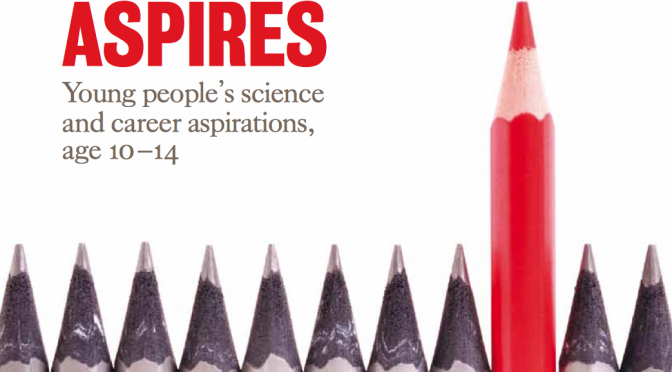A good number of years ago I came across a piece of American research that concluded that the closest indicator to whether a child studied science at a higher level was, aged ten responding positively to ‘being a scientist would make my parents proud’.
Let’s look at that again, shall we? Not ‘I like science’ or ‘I’m good at science’ nor even ‘This really cool scientist is an amazing role model’.
‘Being a scientist would make my parents proud’.
I remember being struck deeply by this. Firstly: ten is young. Many interventions target teens. Secondly: the nuance involved. The child is already prioritising their parent’s hopes over their own interests, and that decision remains true through all their choices. Yikes.
This left me with a profound conclusion. We’ve been targeting the wrong people, folks!
Longitudinal studies are expensive and difficult, but one study isn’t enough to rewrite whole philosophies over, which is why I’ve been following the Aspires project coming out of Kings College, London.
The final report last December tells us ‘Most students like science, but do not aspire to science careers’
Coming strongly out of that research is the concept that family ‘science capital’ is key. This attempts to measure how much science contact families have in daily life – interest, understanding, qualifications, knowing someone with a science career – these all count towards science capital.
Catching kids by themselves may not be enough, working with families and parents might well be more effective, which is why I was delighted to read Alom’s article last week giving some background to the Royal Institution’s new summer project ExpeRimental.
There is no silver bullet, no simple, single answer, but it’s a delight to see projects like this one coming from a recognised national institution based on current research.
It reminds me, I need to dig out more research like this, it helps to mould my thinking. I only wish I knew where to find that original paper. If it rings a bell with anyone, please leave a comment.

